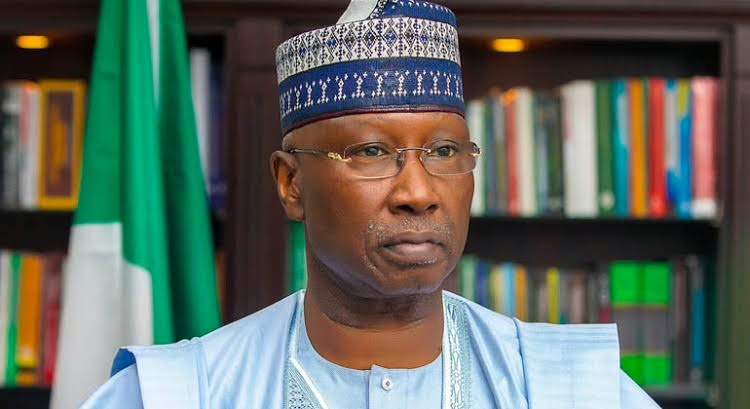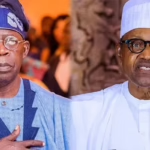Former Secretary to the Government of the Federation, Boss Mustapha, has disclosed that the merger of several political groups in 2013 added about 3.2 million votes to Muhammadu Buhari’s existing support base, helping secure the All Progressives Congress (APC)’s historic victory in the 2015 presidential election.
He made this known in Abuja during the official launch of According to the President: Lessons from a Presidential Spokesman’s Experience, a memoir authored by former presidential spokesperson Garba Shehu.
According to Mustapha, Buhari had already built a consistent voter base of 12.2 million before the 2015 contest. The addition of 3.2 million votes from the merging political blocs, including Bola Tinubu’s Action Congress of Nigeria (ACN), Atiku Abubakar’s New PDP faction, and other parties, was what gave APC the edge to defeat then-President Goodluck Jonathan.
The 2013 coalition, which brought together the Congress for Progressive Change (CPC), ACN, parts of the All Nigeria Peoples Party (ANPP), a segment of the All Progressives Grand Alliance (APGA), and breakaway elements from the PDP, was described by Mustapha as a critical turning point in Nigeria’s political landscape.
He recalled that Buhari, who was leading the CPC at the time, initiated the process by setting up a merger committee to engage with other opposition parties. Mustapha, who served as Deputy National Chairman of the ACN, said similar committees were created within other parties to facilitate the talks.
“Buhari’s endorsement of the merger gave it the weight and legitimacy it needed,” Mustapha explained, adding that Tinubu, Senator Ali Modu Sheriff, and others played key roles in unifying the various factions under the new APC platform.
Highlighting the rationale behind adopting Buhari as the APC presidential candidate, Mustapha said the party made a strategic decision based on his electoral history. Buhari had polled 12.7 million votes in 2003, dropped to 6.6 million in 2007, and rose again to 12.2 million in 2011—all while contesting against PDP candidates.
“At the time of the merger, we analysed where our strength lay. Though CPC controlled only one state, ACN had six, and ANPP three, it was Buhari’s consistent numbers that offered a clear advantage,” he said. “When APC eventually won in 2015 with 15.4 million votes, it was clear that the 3.2 million came from the other groups.”
Mustapha clarified that his comments were not aimed at igniting controversy but were meant to reflect the strategic decisions that led to the fall of an incumbent government—a first in Nigeria’s democratic experience.
He also credited Buhari’s personal character, national image, and campaign discipline as central to APC’s success at the polls, stating that the former president helped bridge the divide between diverse political actors.











Leave a Reply